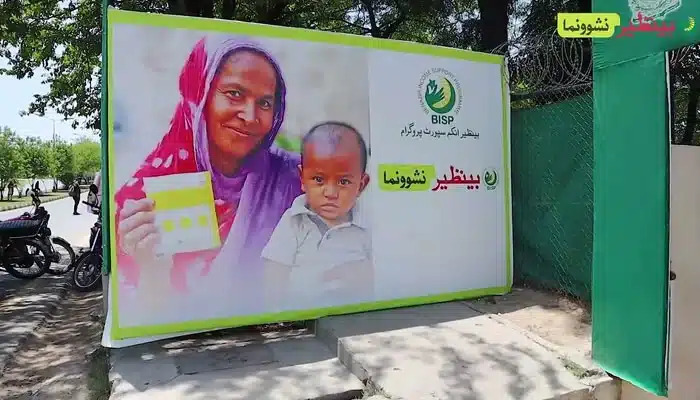The recent revelations of serious irregularities in the implementation of the Benazir Nashunama Programme (BNP) in Khyber Pakhtunkhwa (KP) highlight a critical moral and governance failure, underscoring the provincial government’s misplaced priorities and inability to effectively serve its people.
These issues, which include financial misappropriations, ghost employees, and the absence of proper monitoring systems, reveal a disturbing pattern of bad governance that reflects a failure to prioritize the welfare of citizens over political interests.
At its core, the BNP aims to support pregnant and breastfeeding women, along with children under five, by providing vital nutritional food supplements and services to improve maternal and child health. This is a program that, if managed correctly, can have a profound impact on the well-being of vulnerable populations, particularly in a province like Khyber Pakhtunkhwa where poverty and malnutrition remain persistent challenges.
Yet, the program has fallen prey to a series of mismanagements and abuses that undermine its goals and trust in the local government.
The most damning aspect of this situation is the reported irregularity of approximately Rs799 million in staff salaries, where payment slips were withheld from workers, and funds were charged in full to the World Food Programme (WFP) and the Benazir Income Support Programme (BISP) without transparency.
These are not just technical discrepancies but breaches of trust that, if left unaddressed, erode the integrity of public service. The fact that this irregularity represents 30% of the total BNP funds transferred to KP is alarming, as it speaks to the scale of mismanagement and the lack of ethical responsibility in handling public resources.
Additionally, the exposure of ghost employees within the BNP in KP, particularly linked to Peshawar district, is yet another blow to the credibility of the provincial governance system.
Ghost employees are an emblematic sign of corruption, where public funds are funneled into fake positions rather than serving the intended beneficiaries. These practices reflect a system where personal and political interests supersede the needs of the people, resulting in ineffective programs that harm society’s most vulnerable groups.
Furthermore, the illegal selling of specialized nutritious food provided under the BNP in various districts of KP including Peshawar, Nowshera, and Bajaur exemplifies a breakdown in both governance and ethics. The sale of food intended to improve the health of children and mothers exposes the deep corruption embedded in the system.
Despite the allegations, no actions have been taken against the responsible individuals, illustrating a lack of political will to hold officials accountable for actions that directly undermine the health and safety of the population.
The decision by the WFP to transfer the financial and human resource components of the BNP from the KP government to NGOs is an unfortunate but necessary step. The move seeks to restore transparency and accountability, but it also highlights the failure of the provincial government to manage resources and implement the program effectively.
The repeated attempts by the WFP to address the irregularities with the KP government, and the subsequent lack of response from key officials, paint a picture of a government more interested in protecting its own interests than in ensuring the well-being of its citizens.
The response of KP officials, particularly Health Secretary Adil Shah, is an example of deflection and denial. While denying the allegations, Shah insisted that the provincial government was acting in accordance with agreements and that no action could be taken on anonymous complaints.
This mindset, which downplays issues until they become too large to ignore, speaks volumes about the governance culture in KP. It demonstrates a focus on political narratives rather than addressing real-world problems that affect everyday citizens.
This situation is indicative of the broader issue of bad governance in KP. The provincial government’s priorities are clearly misplaced. Instead of focusing on improving the lives of the people through effective governance, political leadership seems more concerned with protecting its own reputation and interests. The lack of proper monitoring, financial oversight, and accountability mechanisms ensures that corruption and mismanagement continue unchecked.
In a province that is still grappling with the challenges of poverty, conflict, and underdevelopment, this failure in governance is a tragic missed opportunity. Programs like the BNP could have been transformative, but due to poor governance, mismanagement, and corruption, the benefits meant for vulnerable populations have been squandered.
Ultimately, the people of Khyber Pakhtunkhwa are the ones who suffer from this mismanagement. The failure to prioritize their welfare is a moral betrayal by those in power. It is a failure of leadership that undermines public trust and hampers the progress that KP so desperately needs.
As the WFP takes steps to shift responsibility away from the provincial government, the real question remains: when will KP’s leadership recognize that good governance requires moral integrity, transparency, and a genuine commitment to serving the people? Until that happens, the people of KP will continue to face the consequences of bad governance, while those in power remain focused on everything but their most basic duty to improve the lives of their citizens.


